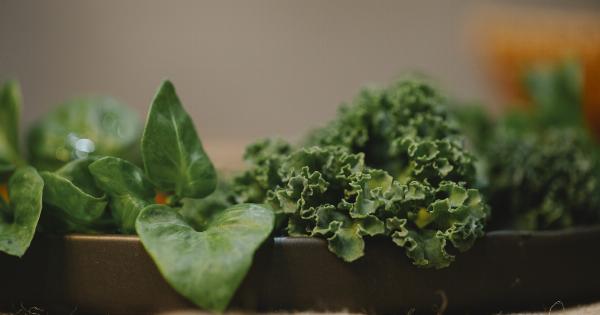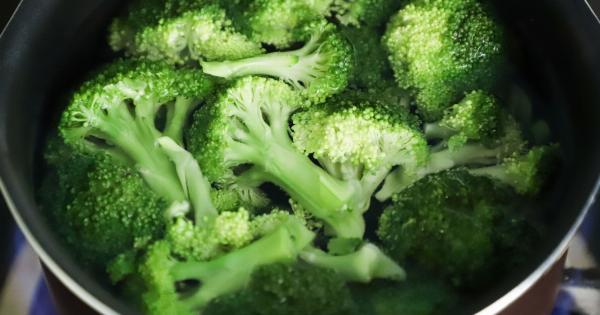Soaking legumes, such as beans, lentils, and chickpeas, overnight is a common practice in many cultures. This process involves submerging the legumes in water for several hours, typically overnight, before cooking them.
While some may argue that soaking legumes is unnecessary, there are several benefits to this age-old technique. In this article, we will explore what happens when you soak legumes overnight and the reasons behind this practice.
1. Improved Digestibility
One of the primary reasons for soaking legumes overnight is to improve their digestibility. Legumes contain complex carbohydrates, such as oligosaccharides, that can be difficult for the human digestive system to break down.
Soaking the legumes helps to break down these complex carbohydrates, making them easier to digest. This can reduce the chances of digestive discomfort, such as bloating and gas, that are often associated with consuming legumes.
2. Reduced Cooking Time
Soaking legumes can also significantly reduce their cooking time. When legumes are soaked, the water penetrates the tough outer skin and hydrates the inner layers, allowing them to cook more quickly and evenly.
This can be especially beneficial when it comes to larger legumes, such as chickpeas or kidney beans, which can take a long time to cook when not soaked.
3. Improved Nutrient Absorption
Soaking legumes overnight can enhance the absorption of nutrients present in the legumes. Legumes are a rich source of essential nutrients, including protein, fiber, vitamins, and minerals.
However, they also contain certain anti-nutrients, such as phytic acid and enzyme inhibitors, that can hinder the absorption of these nutrients by the body. Soaking legumes helps to neutralize these anti-nutrients, making the nutrients more bioavailable and easier for the body to absorb.
4. Enhanced Flavor and Texture
Soaking legumes can also improve their flavor and texture. When legumes are soaked, they absorb water, which helps to soften their texture and make them more tender when cooked. This results in a creamier and more enjoyable eating experience.
Soaking can also help to remove any residual dirt or debris that may be present on the legumes, further improving their overall quality.
5. Reduced Antinutrient Content
As mentioned earlier, legumes contain certain anti-nutrients, such as phytic acid and enzyme inhibitors, which can interfere with the absorption of nutrients.
Soaking legumes can help to reduce the level of these anti-nutrients, making the legumes more nutritious. Phytic acid, for example, can bind to minerals like iron, zinc, and calcium, preventing their absorption. Soaking can help to break down and remove phytic acid, allowing for better mineral absorption.
6. Potential Health Benefits
Soaking legumes overnight may offer various health benefits. Legumes are known for their high fiber content, which can support digestive health, regulate blood sugar levels, and promote satiety.
The soaking process can enhance the fiber content of legumes and make them even more beneficial for gut health. Additionally, legumes are a great plant-based protein source, and soaking can help make this protein more digestible and accessible to the body.
7. Improved Cooking Uniformity
Soaking legumes can lead to more uniform cooking. By hydrating the legumes evenly, soaking ensures that they cook at a consistent rate. This eliminates the problem of some legumes being undercooked while others are overcooked.
Soaking can help to achieve a more desirable texture and appearance in the cooked legumes.
8. Reduction in Phytates
Phytates are naturally occurring compounds found in legumes that can interfere with the absorption of certain minerals. Soaking legumes can help to reduce the phytate content, improving the bioavailability of minerals like iron, zinc, and calcium.
It is worth noting that soaking alone may not completely eliminate phytates, but it can certainly help to reduce their levels.
9. Minimization of Antinutritional Factors
Soaking legumes can help minimize the presence of antinutritional factors, such as lectins. Lectins are proteins that can bind to the lining of the gut and potentially cause inflammation or digestive issues.
Soaking legumes can reduce the level of lectins, making them safer to consume and easier to digest.
10. Overall Improvement in Quality
Soaking legumes overnight can result in an overall improvement in the quality of the cooked legumes. It helps to break down complex carbohydrates, reduce the levels of antinutrients, improve nutrient absorption, and enhance the texture and flavor.
These factors contribute to a more enjoyable eating experience and improved nutritional value of legumes.





























